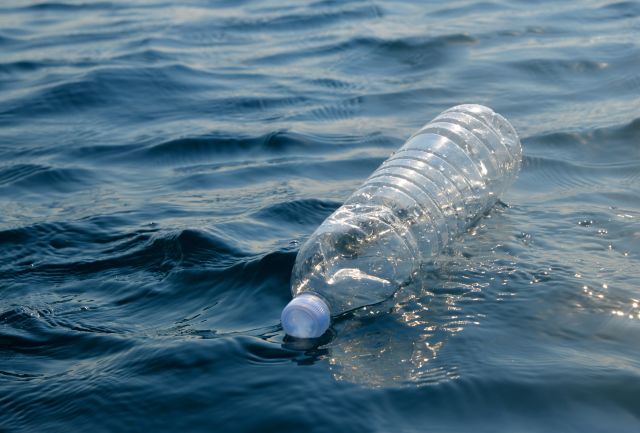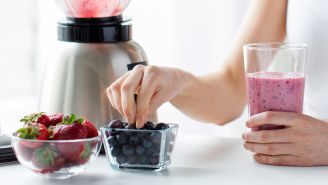Updated on September 1, 2023.
Bottled water has been around longer than you might think. In Europe, glass bottles filled with water can be traced back to the 1500s. In the United States, the first water bottles were sold in the 1700s.
These days, many of those bottles are plastic, of course—and thanks to a boom in demand beginning in the 1980s and 1990s, they’re everywhere. According to a 2023 report put out by the United Nations University Institute (UNU) for Water, Environment, and Health, the worldwide market for bottled water increased by 73 percent over the last decade.
In 2021, the global market for the three main types of bottled water (treated, sparkling, and mineral water) was around $270 billion. In the U.S. alone, revenue reached about $64 billion.
The environmental impact of plastic water bottles
Globally, over 85 percent of bottles made with the most common plastic bottle material—polyethylene terephthalate (PET)—are not recycled, per the UNU report.
According to the Container Recycling Institute (CRI), in 2018, Americans bought more than 70 billion plastic water bottles. Seventy-five percent of these were either incinerated or went into a landfill, where they take up to 1,000 years to biodegrade. Many millions of others ended up as litter, dropped in waterways and strewn across forests, beaches, and roadsides.
Producing just one plastic water bottle takes about a quarter-bottle’s worth of crude oil, according to National Geographic. In the U.S., the oil used to produce bottles could keep a million cars fueled for a year.
What’s more, between two to four liters of water is required to make each liter of bottled water. One of the many consequences of this heavy water usage is the depletion of groundwater in areas of the world experiencing water shortages
Recycling helps mitigate the environmental impact of plastic water bottles, but reusing and reducing are even better. If possible, try to bypass their use altogether. Invest in a couple of portable, dishwasher-safe, stainless steel bottles that won't leach chemicals into your water. (If you continue using plastic water bottles, beware of refilling one you just emptied, since PET breaks down with multiple uses.)
More reasons to turn on the tap
Besides being harmful to the environment, the UNU report points out that the common assumption that bottled water is always safe and pure is “misleading.” While it’s true that bottled water is generally safe, the way plastic bottles are stored can affect their quality.
And many types of contaminants have been detected in commercial water samples, across countries and brands of water. This includes inorganic (like heavy metals), organic (like pesticides and microplastics), and microbiological (like bacteria) contaminants.
Here are five more reasons to turn to tap water instead.
Tap water is tested more frequently. Under the Safe Drinking Water Act, local water suppliers are required to test tap water regularly and to provide an annual report on the quality of the water. The Environmental Protection Agency (EPA) sets and enforces the legal limits for over 90 contaminants. For some contaminants, like coliform bacteria, tap water is tested daily or even more frequently. By comparison, the FDA requires that bottled water be tested for coliform only weekly, and consumers don't have access to the results.
Tap water contains far fewer microplastics. That’s according to a 2022 narrative review published in the International Journal of Environmental Research and Public Health.
Tap water is a bargain. Depending on the brand and type of bottled water, it can cost between 500 and 10,000 times more than tap.
Tap water is a tooth saver. It has more fluoride than bottled water, and that helps prevent tooth decay.
Tap water can be tasty. Some places—even New York City!—have water considered by many people to be delicious. But if you don't love the flavor of your area’s H2O, the solution is simple: Run your tap water through a filter system to help remove unpleasant tastes and odors.
A quality, pitcher-style home filter can be purchased for as little as $16, and the ongoing costs for filtration are between $0.11 and $0.67 per gallon. Reliable faucet-mounted filters start at around $32, with the cost per gallon between $0.16 and $0.19. Refrigerator water filters come in a variety of types and cost around $50 to replace. Depending on usage, that might be anywhere from one to six months.
To improve your health, save money, and help the environment, make the switch to tap water today.







